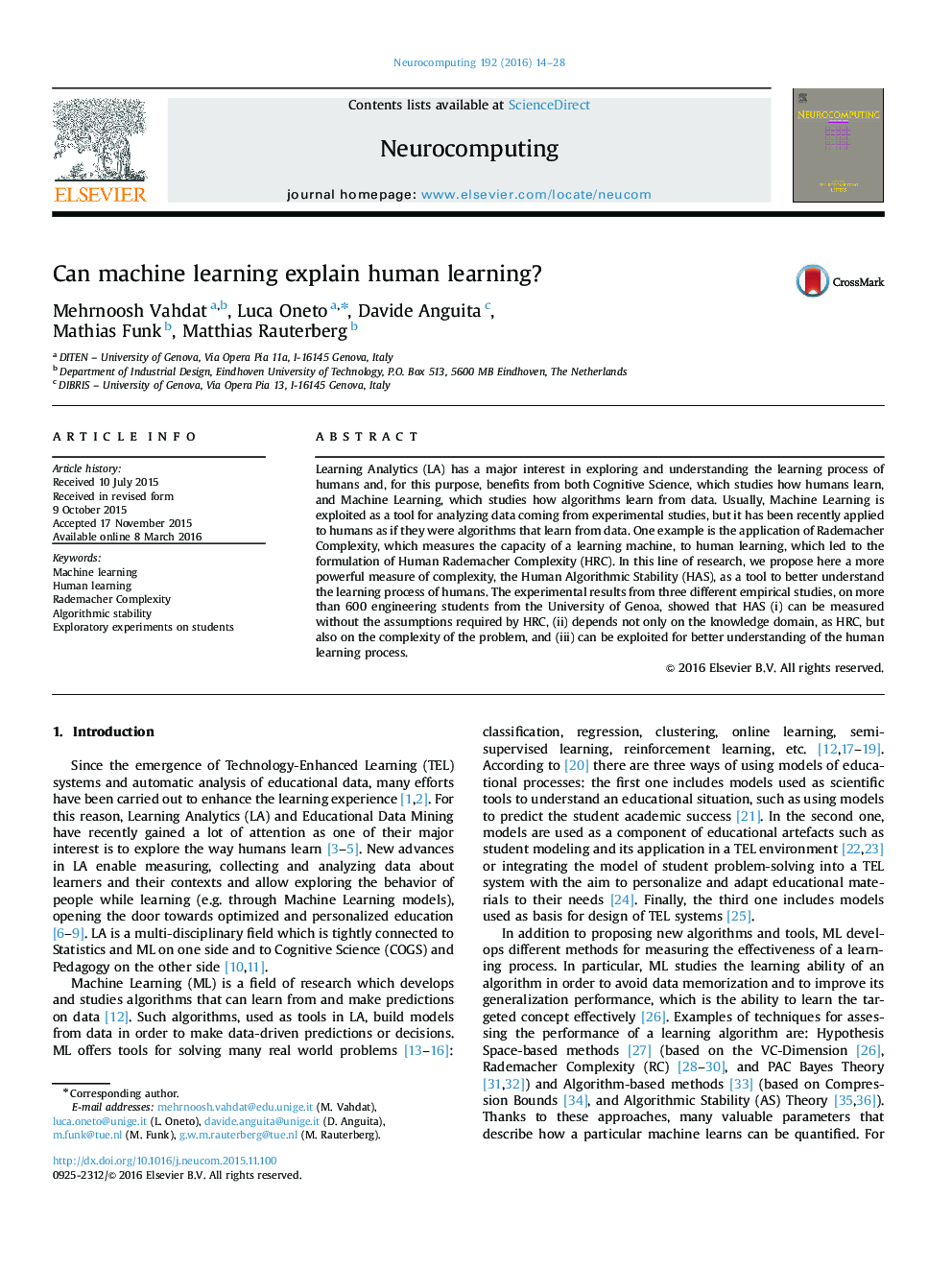| Article ID | Journal | Published Year | Pages | File Type |
|---|---|---|---|---|
| 405817 | Neurocomputing | 2016 | 15 Pages |
Learning Analytics (LA) has a major interest in exploring and understanding the learning process of humans and, for this purpose, benefits from both Cognitive Science, which studies how humans learn, and Machine Learning, which studies how algorithms learn from data. Usually, Machine Learning is exploited as a tool for analyzing data coming from experimental studies, but it has been recently applied to humans as if they were algorithms that learn from data. One example is the application of Rademacher Complexity, which measures the capacity of a learning machine, to human learning, which led to the formulation of Human Rademacher Complexity (HRC). In this line of research, we propose here a more powerful measure of complexity, the Human Algorithmic Stability (HAS), as a tool to better understand the learning process of humans. The experimental results from three different empirical studies, on more than 600 engineering students from the University of Genoa, showed that HAS (i) can be measured without the assumptions required by HRC, (ii) depends not only on the knowledge domain, as HRC, but also on the complexity of the problem, and (iii) can be exploited for better understanding of the human learning process.
